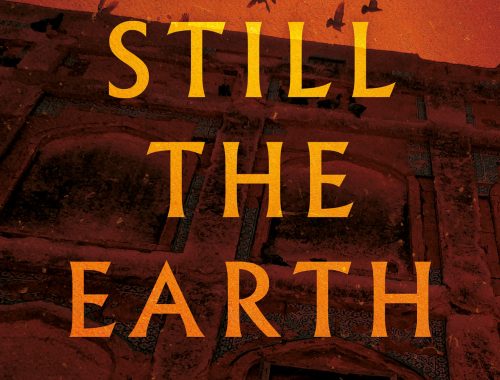The Island
Victoria Hislop
 The Petrakis family lives in the small Greek seaside village of Plaka. Just off the coast is the tiny island of Spinalonga, where the nation’s leper colony once was located—a place that has haunted four generations of Petrakis women. There’s Eleni, ripped from her husband and two young daughters and sent to Spinalonga in 1939, and her daughters Maria, finding joy in the everyday as she dutifully cares for her father, and Anna, a wild child hungry for passion and a life anywhere but Plaka. And finally there’s Alexis, Eleni’s great-granddaughter, visiting modern-day Greece to unlock her family’s past.
The Petrakis family lives in the small Greek seaside village of Plaka. Just off the coast is the tiny island of Spinalonga, where the nation’s leper colony once was located—a place that has haunted four generations of Petrakis women. There’s Eleni, ripped from her husband and two young daughters and sent to Spinalonga in 1939, and her daughters Maria, finding joy in the everyday as she dutifully cares for her father, and Anna, a wild child hungry for passion and a life anywhere but Plaka. And finally there’s Alexis, Eleni’s great-granddaughter, visiting modern-day Greece to unlock her family’s past.
A richly enchanting novel of lives and loves unfolding against the backdrop of the Mediterranean during World War II, The Island is an enthralling story of dreams and desires, of secrets desperately hidden, and of leprosy’s touch on an unforgettable family.
I have heard a lot about how good this is and have also very much enjoyed Victoria’s ‘The Return’, so I started out with high expectations and I have to say I wasn’t disappointed.
The story begins with Alexis, a girl wanting to discover her history. She is in a place in her life of uncertainty, not knowing which direction to move in and is wondering about her roots. She heads for Crete to unravel the mysteries of her families past. As she arrives in Greece the story leaves her to tell the story of the generations before her and how her life is as it is because of what has gone before.
The story follows the life of her Great Grandmother whose family is blighted by Leprosy. This is a family saga tracing the effects of the treatment of one generation on the next. There are great ingredients for a saga, love, loss, betrayal, revenge and passion are all there along with twists and turns of extended family life. I particularly liked the non-traditional relationship between the sisters and the faithfulness of their father, Giorgis, as he rows every week to visit Spinalonga with supplies and, tragically, to visit his wife and then his daughter exiled on the island.
The look into the history of Crete at this time was gripping. European history is so turbulent and it affects everyone and yet on the island of Spinalonga in the leper colony they remain so distant from everything. But Victoria does show how the Cretans reacted to the war, their resistance and the bravery of many islanders, particularly the young men working with the British to sabotage German plans during Crete’s occupation.
The way the Lepers themselves used to be treated was shocking, I knew Lepers were oucasts but this leaves you in no doubt about what the disease did to people both physically and socially. Leper colonies and dreadful conditions in hospitals and so on all reflect the fear on which the disease was held by people. It seems that those on Spinalonga were somehow the lucky ones despite their expulsion from the commumity and having to leave friends and family. At least they had a community and people who cared and understood on the island. As the first cures for Leprosy begin to be developed there is also an insight here into the positive and negative changes this brought to the lives of the people, both those suffering and those back on the mainland. The families who hope to see loved ones again and those in living in fear and superstition and wary of those who have been cured.
All this is played out vividly as Victoria describes the beauty of Crete and the barrenness of Spinalonga both in the past and in Alexis’ visit in the present day.
Verdict: There is so much in this book that this just scrapes the surface. It has so much in it to think about and it is more than your average beach read, with a great heart at its centre.
Reviewed by Helen
Publication Date: April 2006
Format: Paperback
Pages: 480
Genre: Historical fiction
Reviewer: Helen
Source: Own Copy
Challenge:British Book


